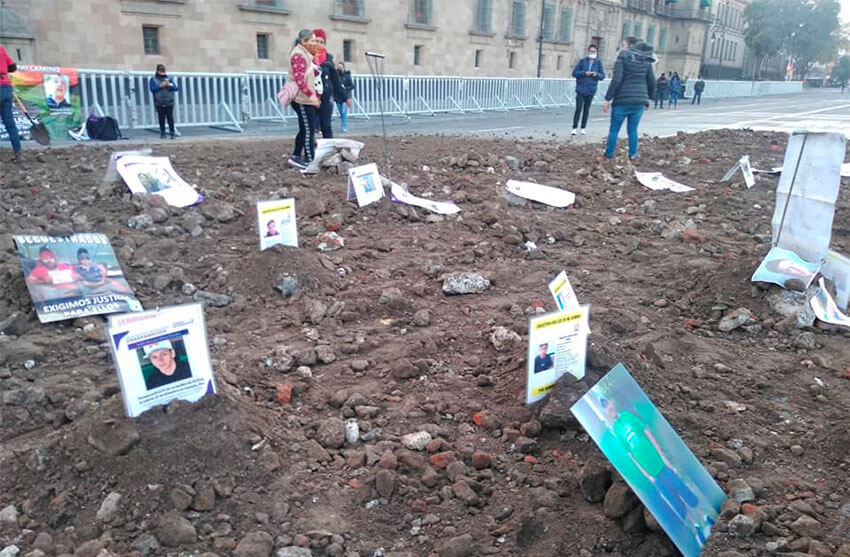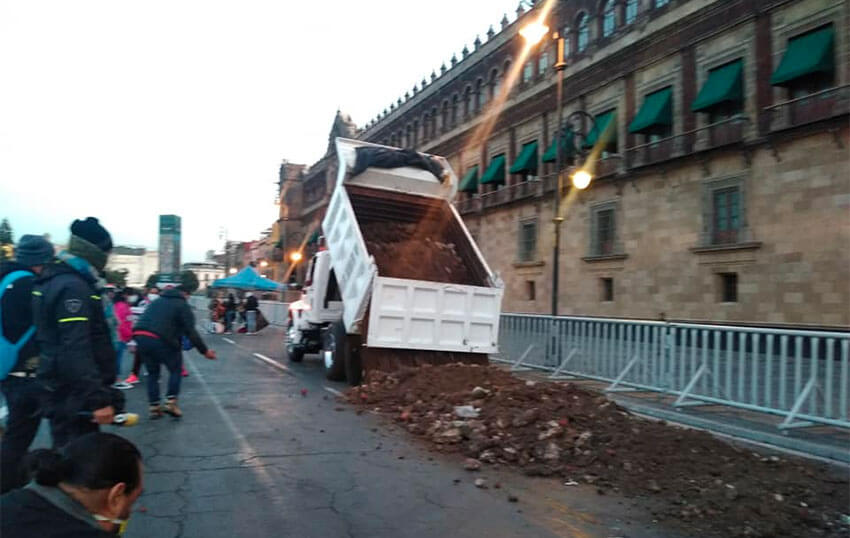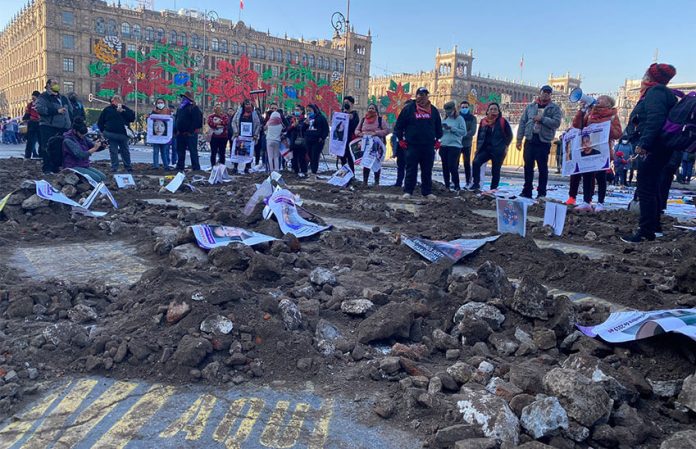Almost three years ago, a senior federal official described Mexico as an “enormous hidden grave” given the large number of clandestine burial pits scattered across the country.
On Monday, not-so-clandestine graves – albeit simulated – were uncovered in front of the National Palace in the historic center of Mexico City.
Families of people who have disappeared in Guanajuato – Mexico’s most violent state – set up the mock graves in front of the seat of executive power to put the missing persons issue squarely in the sight of President López Obrador and pressure his government to act.
The protesters’ rationale and rallying cry: “If Andrés Manuel won’t go to the graves, the graves will come to him.”
Early on Monday morning, before the president began his 7:00 a.m. news conference at the National Palace, a truck dumped a load of dirt and rocks in front of the building, which also serves as López Obrador’s residence.

The mainly female protesters, members of three search collectives from Guanajuato, proceeded to use the dirt to cover the mock graves they had set up.
Then – while López Obrador was speaking to reporters inside the National Palace – they used shovels and picks to remove the dirt in a simulated act of exhumation. But instead of bodies they uncovered written messages that included denunciations of the government and demands for it to combat the missing persons problem.
Among them: “The graves are the result of the absence of the state;” “We don’t want to bury them, we want to hug them;” “The truth cannot remain hidden;” and “We’re looking for answers.”
In a statement posted to social media, the collectives rejected a claim there were no hidden graves in Guanajuato.
“When the authorities told us there weren’t secret graves in the state we, with our hands full of dirt and love, showed them there were,” they said. “We’re looking … for justice, we’re looking for answers, we’re looking for the truth.”
The protesters claimed that the federal government’s militarized security strategy and crackdown on fuel theft has caused violence to increase in Guanajuato, where almost 3,000 homicides were recorded in the first 10 months of the year. They called for authorities to guarantee the safety of people searching for their missing loved ones, explaining that some have received threats.

The protesters, who displayed photographs of their missing loves ones atop the “graves” they uncovered, sought an audience with the president but weren’t granted one.
“On the part of President Andrés Manuel López Obrador it was a negative,” said Liliana Mendoza, a member of the Hasta Encontrarte (Until We Find You) collective. “They just told us to leave our statement.”
The family members subsequently took their protest to the offices of the federal Attorney General’s Office (FGR). They called for greater collaboration between the FGR and its Guanajuato counterpart on missing persons cases and demanded additional funding for search efforts and to compensate victims of violence and their families.
More than 95,000 people are officially listed as missing in Mexico, with the vast majority disappearing in the 15 years since former president Felipe Calderón launched a militarized war against drug cartels. There are some 52,000 unidentified bodies in the nation’s morgues and common graves.
After a 12-day “historic visit” to Mexico last month, the United Nations Committee on Enforced Disappearances said that an inadequate security strategy, poor investigations into missing person cases and impunity were key factors in the persistence of abductions.
The government has promised to allocate more resources to the search and identification of missing persons and there are now search commissions in every state.
But “most of the burden continues to fall on family members, search groups and other non-governmental organizations, which face bureaucratic barriers, corruption and government negligence,” InSight Crime, a foundation dedicated to the study of organized crime, said in August.
With reports from Animal Político, El Universal and AP
